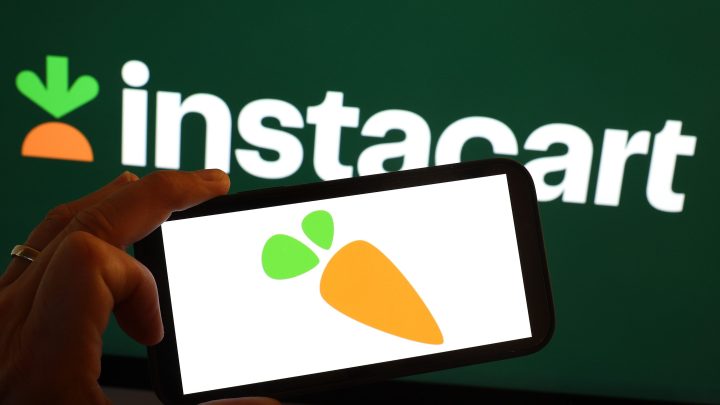
An app’s worth is partly the data it’s got on you, the customer
An app’s worth is partly the data it’s got on you, the customer

A darling of the pandemic economy is testing initial public offering waters Tuesday. After the smooth sailing of British chip designer Arm Holdings last week, Instacart is offering shares at a price of $28 to $30, aiming for total valuation of up to $9.9 billion. While the appetite for food delivery is no longer as voracious as it was back in 2020, Instacart has found another way to make money: advertising.
Nearly a third of the company’s revenue last year came from advertising and software sales, according to its prospectus. And it’s certainly not the first e-commerce service to make this pivot.
Businesses like Instacart, Amazon or Uber have the things they’re actually selling: yogurt, no-name electronics, rides to the airport. Forrester retail analyst Sucharita Kodali said increasingly, they’re also selling your eyeballs.
“You search for yogurt, and there’s, like, a Chobani ad,” she said. “It’s more lucrative to sell an ad than it is to actually, in many cases, sell the yogurt.”
Most of us are used to ads on websites or apps. But advertising on retail sites specifically is becoming ubiquitous, said Garrett Johnson, a marketing professor at Boston University.
“Uber, Lowe’s, Home Depot, DoorDash, Uber Eats, CVS, Walgreens, Macy’s, like the list just goes on and on and on,” he said.
There’s a crackdown on data privacy in some countries and states, Johnson said. Plus, policies that make it easier for consumers to opt out of mobile app tracking have made targeted advertising more difficult.
That’s made e-commerce sites, with their ample data about users, even more attractive to advertisers.
“They are capturing consumers with a very, very strong intent to purchase,” said Vijay Gurbaxani, a professor of business and computer science at the University of California, Irvine. “I don’t go to Instacart to hang out or read something, right? I go to Instacart to buy something.”
But relying on advertising too much can turn customers off, said Kaitlin Ceckowski with market research firm Mintel.
“Just the amount that you’re exposed to while trying to live your everyday life can really put, like, a sour taste in your mouth,” she said.
In Mintel surveys, almost three-quarters of consumers said they’d stop visiting a website if too many ads interfered. And losing those eyeballs cancels out the whole point of advertising.
There’s a lot happening in the world. Through it all, Marketplace is here for you.
You rely on Marketplace to break down the world’s events and tell you how it affects you in a fact-based, approachable way. We rely on your financial support to keep making that possible.
Your donation today powers the independent journalism that you rely on. For just $5/month, you can help sustain Marketplace so we can keep reporting on the things that matter to you.

















